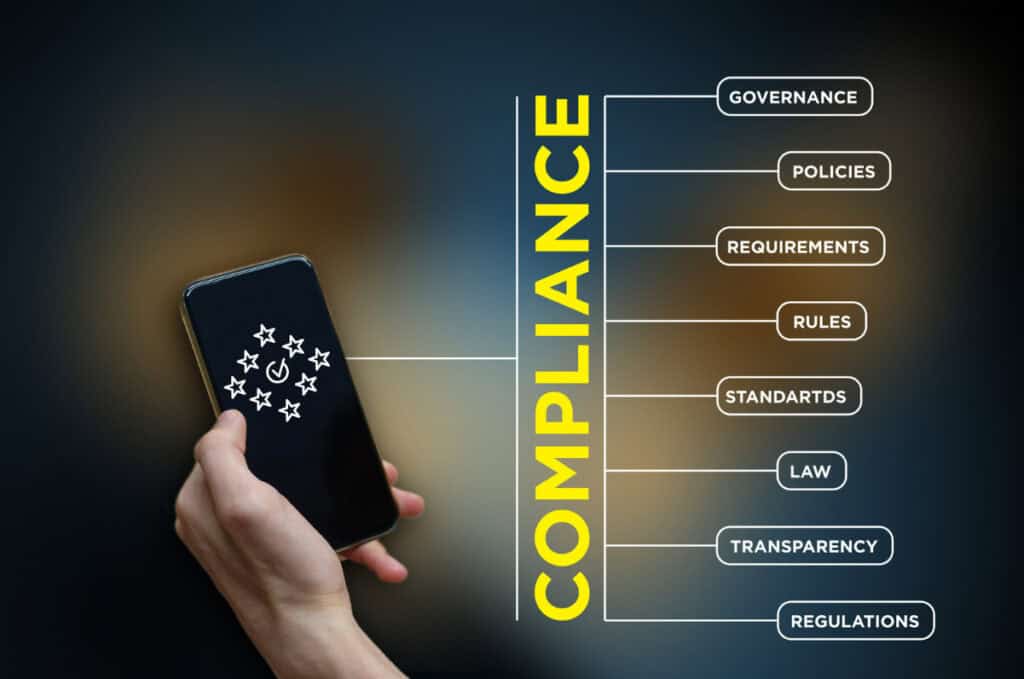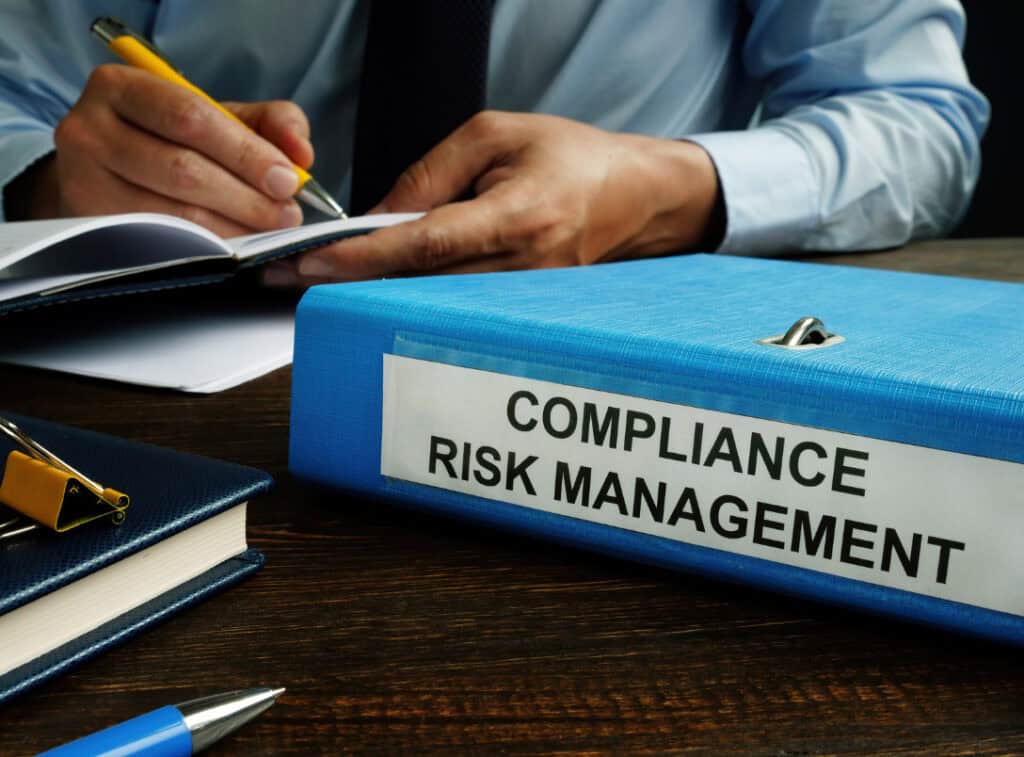Ensuring that an organization follows regulations and standards is essential for smooth operations and for avoiding penalties or legal issues due to non-compliance.
Table of Contents
Compliance management software has revolutionized the way organizations handle compliance tasks by streamlining processes and reducing errors traditionally associated with these procedures.

What Does Compliance Management Software Entail?
Compliance management software (CMS) is a tool designed to help companies efficiently manage their obligations by automating tasks such as documentation upkeep, training management, auditing, and reporting processes—all in one convenient platform. This integration enhances oversight and compliance control.

Improving the Efficiency of Compliance Procedures
Organizations benefit from using compliance management software to automate tasks and enhance their compliance practices effectively. The software enables companies to develop and maintain compliance policies and procedures in one accessible location for employees.
Additionally, it automates the monitoring of policy revisions, ensuring that employees are informed of any modifications or new additions. By automating these processes, the software helps prevent incorrect practices from being implemented within the organization.
Managing Risks
A significant aspect of compliance management tools is their capacity to evaluate and address risks linked to non-compliance effectively.
The incorporation of a risk evaluation component allows the tool to identify risks in compliance domains such as data security, personnel safety, fiscal protocols, and more.
This feature assists companies in allocating their resources wisely by directing efforts toward high-risk areas that demand immediate action instead of jeopardizing financial goals.
Employee Understanding
Educating staff members on legal standards is essential for maintaining adherence within a company. Utilizing compliance management tools streamlines the training process by offering online learning modules and monitoring employee progress.
By automating this system, organizations can ensure that all staff members undergo the necessary training to fulfill their responsibilities while remaining informed about industry guidelines.
Reviewing Compliance Programs
Monitoring and auditing compliance programs is crucial for accurately assessing their effectiveness.
Compliance software tools enable firms to plan audits, keep tabs on results, and generate detailed reports swiftly and efficiently. This process helps identify weaknesses or opportunities for enhancement in their compliance strategies.
Records and Written Accounts
Accurate reporting is vital for proving compliance with regulations in sectors like healthcare and finance.
Compliance management software often includes user reporting features that gather information from various channels to create detailed reports tailored to meet specific needs or regulatory guidelines.
Connecting with Different Systems
To enhance productivity in managing compliance tasks, it’s important that compliance management software can easily integrate with other business tools such as Human Resources (HR) systems, Document Management Systems (DMS), or Enterprise Resource Planning (ERP) systems.
This connection facilitates information exchange and eliminates the need for manual data entry, ultimately saving time and minimizing the chances of errors.
Oversight of Compliance Measures
Organizations can use compliance management software to continuously monitor their compliance activities in real-time. Dashboards and analytics tools provided by the software offer a comprehensive view of the current status of compliance requirements.
This functionality empowers businesses to take proactive measures to address any compliance deficiencies or challenges, minimizing the chances of non-compliance issues arising later on.
Managing and Keeping Track of Versions
Handling compliance paperwork can be a daunting task without a proper system in place.
Compliance management tools streamline document control by providing a centralized space to store policies, procedures, licenses, and contracts. They often include version control features that track changes and maintain a history of document revisions.
Memos and Notifications
Staying aware of compliance deadlines is crucial to avoid penalties and maintain a compliant status.
Compliance software can send automated notifications for critical dates, such as license renewals, training expiration dates, and policy reviews, helping businesses stay informed and take necessary actions in advance.
Vendor Coordination
When businesses collaborate with vendors or contractors, ensuring their adherence to regulations is vital. Compliance management software provides tools to oversee vendor partnerships efficiently.
It allows companies to keep records of vendor certifications, perform audits or evaluations, assess performance based on set benchmarks or KPIs (Key Performance Indicators), and maintain current vendor documentation.

Use A Compliance Management Software To Your Advantage
Using compliance management software brings significant advantages to companies across various sectors by automating compliance tasks and enhancing overall efficiency. This software reduces errors while improving oversight and control over compliance activities, enabling better risk management capabilities.
By utilizing compliance management software, businesses can proactively address compliance risks, ensure employees are trained efficiently, and closely monitor compliance activities. Additionally, they can produce timely audit reports and stay informed about regulatory updates effectively.
In an increasingly complex regulatory landscape, investing in compliance management software is not just beneficial—it’s essential for long-term success.



